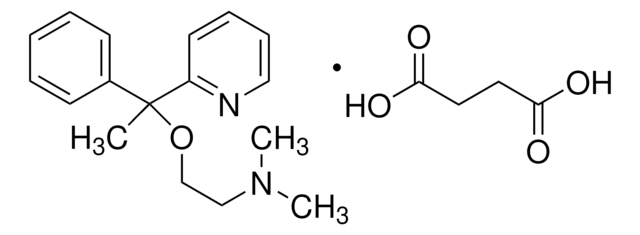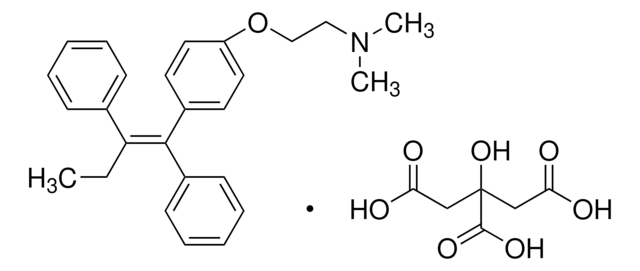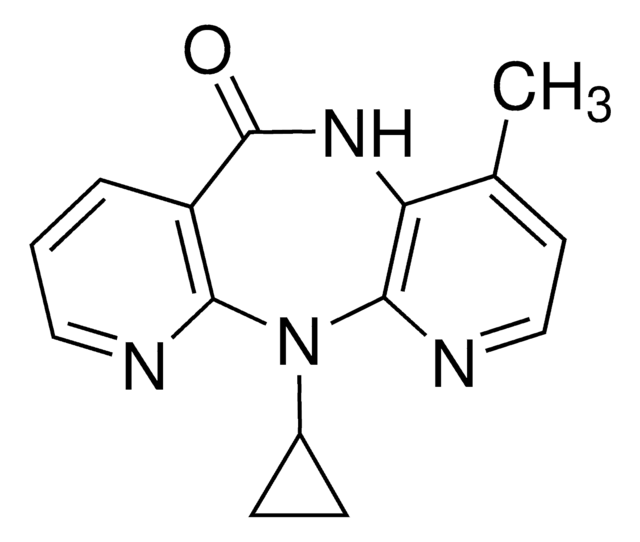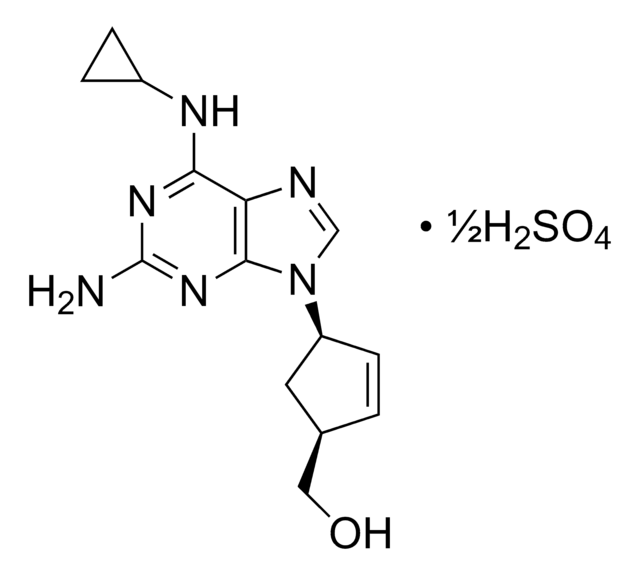1724500
USP
Zidovudine
United States Pharmacopeia (USP) Reference Standard
Synonym(s):
3′-Azido-3′-deoxythymidine, AZT, Azidothymidine, ZDV, Zidovudine
About This Item
Recommended Products
grade
pharmaceutical primary standard
API family
zidovudine
manufacturer/tradename
USP
mp
113-115 °C (lit.)
application(s)
pharmaceutical (small molecule)
format
neat
storage temp.
2-8°C
SMILES string
CC1=CN([C@H]2C[C@H](N=[N+]=[N-])[C@@H](CO)O2)C(=O)NC1=O
InChI
1S/C10H13N5O4/c1-5-3-15(10(18)12-9(5)17)8-2-6(13-14-11)7(4-16)19-8/h3,6-8,16H,2,4H2,1H3,(H,12,17,18)/t6-,7+,8+/m0/s1
InChI key
HBOMLICNUCNMMY-XLPZGREQSA-N
Looking for similar products? Visit Product Comparison Guide
General description
Application
- Abacavir, Lamivudine and Zidovudine Tablets
- Lamivudine and Zidovudine Tablets
- Zidovudine
- Zidovudine Capsules
- Zidovudine Injection
- Zidovudine Oral Solution
- Zidovudine Tablets
Biochem/physiol Actions
Analysis Note
Other Notes
Signal Word
Warning
Hazard Statements
Precautionary Statements
Hazard Classifications
Carc. 2 - Muta. 2
Storage Class Code
11 - Combustible Solids
WGK
WGK 1
Flash Point(F)
Not applicable
Flash Point(C)
Not applicable
Choose from one of the most recent versions:
Certificates of Analysis (COA)
Sorry, we don't have COAs for this product available online at this time.
If you need assistance, please contact Customer Support.
Already Own This Product?
Find documentation for the products that you have recently purchased in the Document Library.
Customers Also Viewed
Our team of scientists has experience in all areas of research including Life Science, Material Science, Chemical Synthesis, Chromatography, Analytical and many others.
Contact Technical Service









